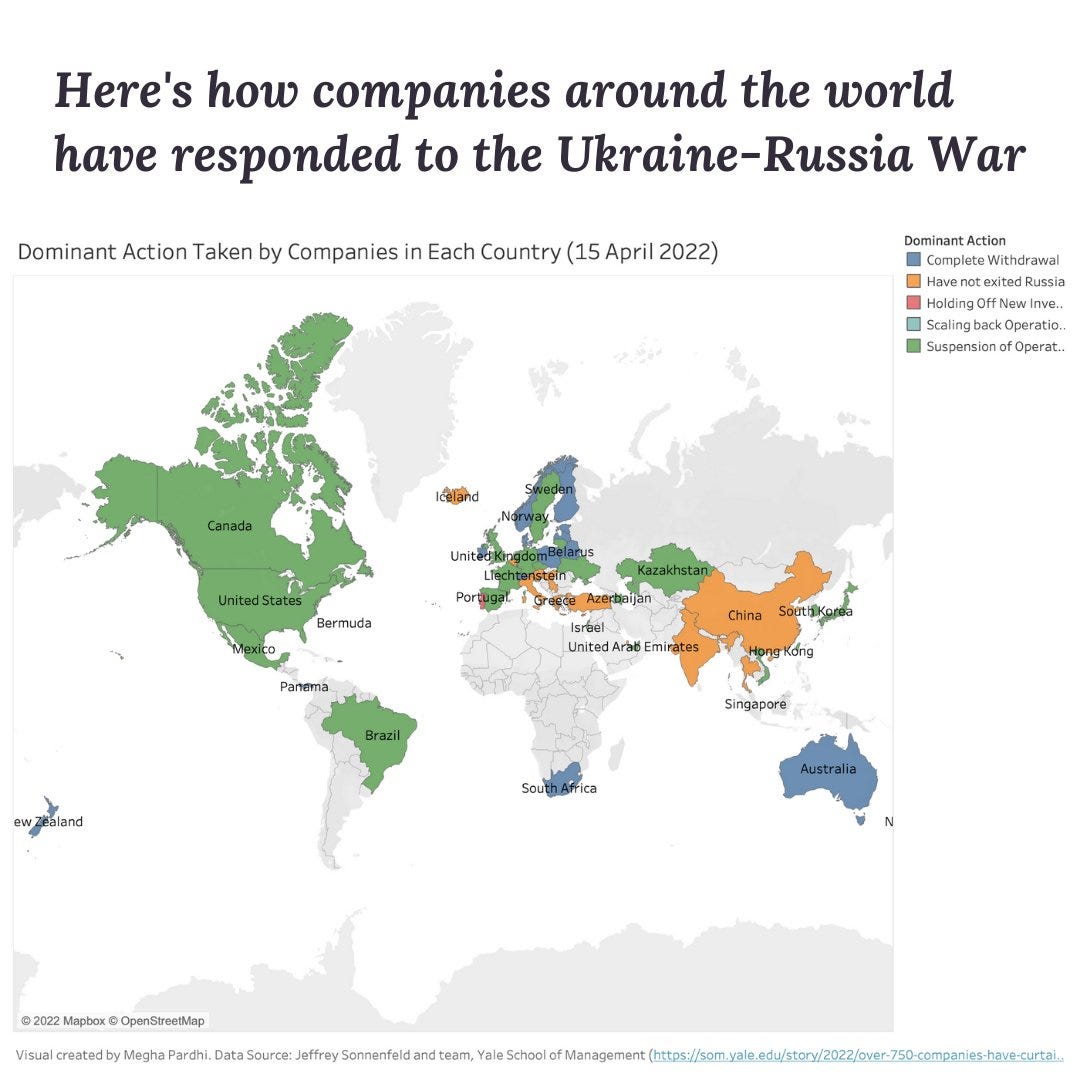India in the Age of Advanced Computing
Dear Reader,
We hope you and your loved ones are well. This edition analyses the geopolitics of advanced computing, how businesses have responded to the Ukraine war, and what the Sri Lankan economic crisis means for India.
India in the Age of Advanced Computing
Computational power is a critical determinant in advanced computing mechanisms, such as high performance, quantum, and cloud computing. Nation-states (and private companies as well) are engaged in a high-stakes race to increase indigenous computing capacity for a number of strategic reasons.
A new discussion document by Arjun Gargeyas and Siddharth Bannerjee offers an overview of the advanced computing landscape, including the various types and applications of computational models and devices. It assesses the role and options for India to harness this pivotal technological resource.
The document delves into geostrategic developments related to advanced computing. It provides an overview of the current computational capabilities of India, including the supercomputer programme and the domestic quantum computing landscape in the country. The main takeaways are:
High Performance and Quantum computing solutions remain the leading market players in the Advanced Computing age.
The global High Performance and Quantum Computing landscape are restricted to a group of technologically advanced, financially sound states.
India needs to assess the pros and cons of different quantum computing technologies to start and develop its domestic quantum computing programme.
The computing landscape in India remains in its infancy, with few supercomputers developed as part of the national mission and no state-financed quantum computing programme (reliant only on public-private partnerships till now).
This document is best read along with Arjun and Siddharth’s previous research on building India’s Quantum ecosystem.
How Businesses Have Responded to the Ukraine War
As the Russia-Ukraine war continues, the appeals to businesses to boycott Russia are also increasing. Hundreds of companies have either scaled down their operations or withdrawn from Russia over the past two months. Companies have cited several reasons ranging from practical considerations, logistical concerns and moral reasons, to even pressure from employees to take some action in response to the war.
Using a database created by Jeffrey Sonnenfeld and his team at the Yale School of Management, Megha Pardhi has put together some visualisations of the actions taken by companies around the world.
India and the Economic Crisis in Sri Lanka
Sri Lanka is facing a historic economic crisis, the biggest since the country’s independence in 1948. On April 12, Sri Lanka declared the default on all payments on its $51-billion external debt to save precious forex reserves to buy oil and agricultural commodities. The alarming level of food scarcity in the country has mobilised the population to demand the ouster of the Rajapaksa regime.
Shrey Khanna wrote an article in ThePrint assessing India’s role in the crisis. He argued that given China’s reluctance to restructure Sri Lankan loans, India has an opportunity to increase its influence in the country. But given India’s own economic situation, it is not viable to continue funding Sri Lanka’s food and oil purchases. Therefore, writes Shrey:
India also needs to push Sri Lanka to improve its ties with the US. Historically, the Rajapaksa brothers have shown a great deal of stubbornness in taking support from the International Monetary Fund (IMF). In 2020, too, as the country began to face a balance of payment crisis, its leaders rejected taking help from the IMF.
Due to its pro-China stance, the Sri Lankan government declined the Millennium Challenge Corporation grant of US$ 480 million offered by the US. Further, under Gotabaya’s presidency, Sri Lanka has also criticised Quad as an “exclusive military alliance” with the potential to lead to a Cold War in the Indo-Pacific. However, having made a default on its external borrowings, now, Sri Lanka has no recourse left but to take help from the IMF.
After burning many bridges with the US under the Rajapaksa family’s arrogance, Sri Lanka now needs diplomatic support from India to navigate the ongoing economic crisis. This gives the latter a strategic opportunity to pull the island out of Beijing’s “debt trap” and take it closer to the US, with which its interests remain aligned in the Indo-Pacific. Doing this would also allow New Delhi to retain its influence in future dispensations in Colombo.
The Arctic and India
In late March, the Indian government published a new Arctic Policy document. The document casts a wide net and explains India’s priorities, objectives and course of action for the Arctic. These priorities and goals include international cooperation, scientific cooperation, space, digital connectivity, biosecurity and polar ice-class research vessels.
On the April 13 episode of All Things Policy, Aditya Pareek joined Alexandre Delangle to discuss the Arctic's governance structure, security environment, international cooperation and India's approach to the region.
Alexandre Delangle is currently a PhD student at Université Paris-Saclay, focusing on, among other things, the militarisation of the American Arctic. Alexandre currently lives in Michigan, USA and works as a Teaching Assistant at Albion College.
Why You Should Take the GCPP (Tech & Policy)
The rapidly expanding technology sector in India will be a key factor in determining the path of progress. Developments in technology are intricately entangled with politics and society.
The Graduate Certificate in Public Policy (Technology and Policy) is a unique offering from Takshashila that will help you understand the political economy and social impact of technology.
Through networked self-study, lectures, and interactive discussions, you will gain a sound knowledge of various policy analysis frameworks and tools.
The GCPP(Tech & Policy) is delivered online, allowing students to participate and learn from anywhere while working in full-time positions. The course consists of weekly online webinars (typically held on Saturdays) spanning 12 weeks and two workshops.
Applications for the May 2022 cohort of the GCPP (Tech & Policy) are open. Classes begin on May 7 and the last date to apply is 30th April.
That’s it from us this week. Take care and stay safe!



